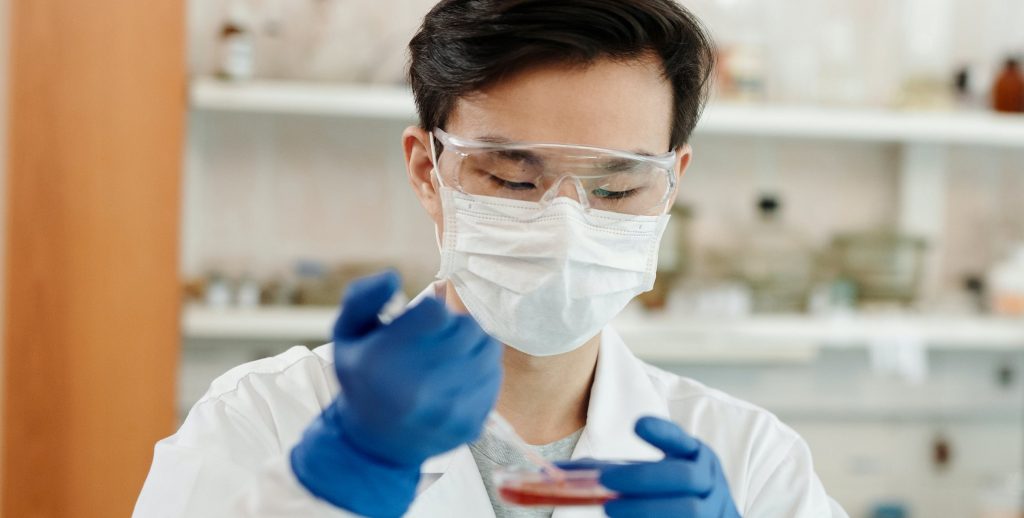What is sexual health?
For many, sexual health can be a difficult topic to discuss. Yet, it’s an integral part of our overall well-being.
Whether you’re curious, concerned, or simply seeking information, Better2Know is here to help. We aim to provide clear, concise, and non-judgmental information about sexual health to everyone who may need it. We believe that knowledge is power, and with the right information, everyone can take control of their sexual health.
So, what is sexual health, and why is it so important? Let’s dive in.

Take control of your sexual health with Better2Know’s Full Screen, a full STI panel that tests for the UK’s 7 most common infections.
What is sexual health?
Sexual health is a fairly broad term that encompasses many facets of our well-being.
It’s very common for people to focus on diseases and infections when thinking about sexual health. And while that aspect is very important, sexual health is not just about the absence of disease or dysfunction. It can involve a person’s physical, emotional, mental, and social well-being concerning sexuality.
Understanding our sexual health requires being aware of our bodies, sexual desires, and relationships. It also includes how we understand and weigh the risks, responsibilities, outcomes, and impacts of sexual actions.
It also means receiving and sharing accurate information about sexual health, being capable of expressing love and intimacy, and having access to sexual health services.
Why is sexual health important?
Like with other aspects of your health, maintaining your sexual health is crucial for several reasons.
Firstly, it’s an integral part of our overall health and well-being. Just as we take care of our physical and mental health, our sexual health also requires attention and care.
Secondly, good sexual health contributes to healthier relationships. Open communication about sexual health can foster trust and intimacy between partners. It’s important to discuss sexual health with your partners, including any concerns or symptoms you may be experiencing.
Lastly, maintaining sexual health is key to a satisfying and enjoyable sexual life. It allows you to make informed decisions, which can help reduce anxiety and stress. Everyone deserves a fulfilling and worry-free sexual relationships, and maintaining good sexual health is the first step towards achieving this.

If you’re worried about your sexual health, book an appointment at a clinic near you.
In Britain, attitudes towards sexual health have been changing. Since the 2000s, Britons have become more open to discussing their sexual health as the stigma around sex and sexuality in the wider culture appears to recede. Women, in particular, are becoming more sexually active in their older age. In general, the population has become more likely to engage in risky sexual behavior, such as engaging in unsafe sex or having sex with multiple sexual partners, particularly among young people.
Common misconceptions about sexual health
There are lots of misconceptions about sexual health out there. Here are just a few of them:
“Only certain people need to worry about sexually transmitted infections.”
Sexually transmitted infections (STIs) do not discriminate. They can affect any sexually active person regardless of age, gender, race, social status, or sexual orientation.
It’s important for everyone who is sexually active to get regular STI testing, practice safe sex, and have open, honest discussions with their partners about sexual health.
“You can tell if someone has an STI.”
Many STIs don’t cause any symptoms, especially in the early stages. This means that someone can have an STI without knowing it and pass it on to others. The only sure way to know if you have an STI is to get tested.
“Contraceptives always protect against STIs.”
While contraceptives like condoms can significantly reduce the risk of most STIs, they do not provide 100% protection. Some STIs can be transmitted through skin-to-skin contact in areas not covered by a condom. Other forms of contraception, like birth control pills or IUDs, do not protect against STIs at all.
“You can’t get an STI from oral sex.”
While the risk is generally lower than with vaginal or anal sex, it is still possible to contract or transmit certain STIs, such as Herpes, Gonorrhoea, and Syphilis, through oral sex. Using a condom or dental dam during oral sex can help reduce this risk.
“Once you’ve had an STI, you can’t get it again.”
This is not true for most STIs. While some infections, like chickenpox, can give you immunity once you’ve had them, most STIs do not work this way. You can get the same STI again if you have sex with someone who is infected.
“STIs only spread through sexual intercourse.”
While sexual intercourse is a common way for STIs to spread, it’s not the only way.
Some STIs like HIV, Hepatitis B, and Hepatitis C can also be spread through sharing needles for drug use. Others, like Herpes and HPV, can be spread through skin-to-skin contact. And many STIs can be passed from mother to baby during childbirth or breastfeeding.
“If you’re in a monogamous relationship, you don’t need to worry about STIs.”
Being in a monogamous relationship can reduce your risk of STIs, but it doesn’t eliminate it. Both partners should get tested before deciding to stop using condoms. And if either partner cheats, the other could be at risk.
“You don’t need to get tested if you don’t have symptoms.”
Many STIs can be asymptomatic, meaning they don’t cause any symptoms. Or the symptoms may be so mild that you don’t notice them. Regular STI testing is important, even if you feel fine.
“Only adults need to worry about sexual health.”
Sexual health is important at all ages. Adolescents and young adults often need information and services to help them make healthy decisions about sex. And older adults are not immune to STIs.
The importance of regular testing
Regular sexual health testing is a crucial aspect of maintaining overall health and well-being. It’s not just for those who have multiple partners or those who think they might have been exposed to an STI. Regular testing is a proactive measure that everyone who is sexually active should consider. It’s about taking control of your health, knowing your status, and preventing the spread of infections.
At Better2Know, we understand that the thought of getting tested can be daunting for many. However, it’s important to remember that STIs are common and treatable. Early detection through regular testing allows for more effective treatment and can prevent long-term health complications.
We also believe that regular testing plays a vital role in reducing the stigma associated with STIs. By normalizing regular check-ups, we can foster a more open and honest conversation about sexual health. Remember, there’s no shame in getting tested.

Get tested for a range of STIs at a sexual health clinic near you.
Dealing with a positive result
Receiving a positive STI test result can be a challenging experience, but in most cases, it’s not the end of the world.
The first thing to remember is that many STIs are curable, and others can be effectively managed with the right medication and care. Early detection, which comes from regular testing, allows for more effective treatment and can help prevent long-term health complications.
Upon receiving a positive result, it’s crucial to seek treatment promptly. When you test with Better2know, we set up a private consultation with one of our doctors, who can help you access the medicine and care you will need for your condition. They may also be able to provide advice on lifestyle changes that could help mitigate the effects of certain infections.
Lastly, it’s essential to take care of your mental health. A positive STI result can inspire some difficult emotions. Reaching out to supportive friends, family, or professional counselors can help. Remember, having an STI does not define you or your future.
In many ways, getting a positive test result can be a good thing. It allows you to take action and improve your sexual health to prevent bad health outcomes in the future.
Prevention and safe sex
If you’re sexually active and you don’t want to get an STI, there are steps you can take.
Practicing safe sex is one of the most effective ways to prevent STIs. This includes using barrier methods such as condoms during sexual activity, getting vaccinated against preventable STIs like HPV and Hepatitis B, and having regular STI tests to ensure early detection and treatment.
You may also want to consider forms of physical intimacy outside of full intercourse or oral sex. Outercourse, for example, is a tried and true method of staying safe from most STIs while still experiencing physical pleasure and intimacy.
Open communication with your partner about sexual health, including discussing STI testing and using protection, is also a key aspect of safe sex. It’s important to remember that it’s okay to discuss these topics and to seek advice if you’re unsure.
Finally, it’s crucial to remember that safe sex and STI prevention are ongoing practices, not one-time measures. Regular STI testing, even if you use protection and have no symptoms, is an essential part of this.
Final thoughts
Maintaining your sexual and reproductive health is a vital aspect of our overall well-being. It’s about more than just preventing disease; it’s about fostering healthy relationships, promoting open communication, and empowering ourselves with knowledge.
At Better2Know, we’re committed to providing you with the tools, information, and services you need to take control of your sexual health. Remember, when it comes to sexual health, it’s always better to know.
We encourage you to take the next step in your sexual health journey by exploring our range of STI tests. Each test is confidential, reliable, and designed to give you the peace of mind you deserve.
So why wait? Take control of your sexual health with Better2Know today.

Don’t leave your sexual health to chance. Get tested with Better2Know today.
Categories
- Awards
- Bacterial Vaginosis
- Blood Tests
- Cervical Cancer
- Chlamydia
- Condoms
- Covid-19
- Gardnerella
- Genital Warts
- Gonorrhoea
- Health and Wellness
- Hepatitis A
- Hepatitis B
- Hepatitis C
- Herpes
- HIV
- HIV (AIDS)
- Home Testing
- HPV
- Instant Testing
- MSM
- Mycoplasma
- News
- Non-Specific Urethritis
- PAP Smear
- Pre-Pregnancy
- Sexual Health
- STD Symptoms
- STD Tests and Screens
- STI Transmission
- Stigma
- STIs
- Swab Tests
- Syphilis
- Trichomonas
- Ureaplasma
- WSW
- Zika
